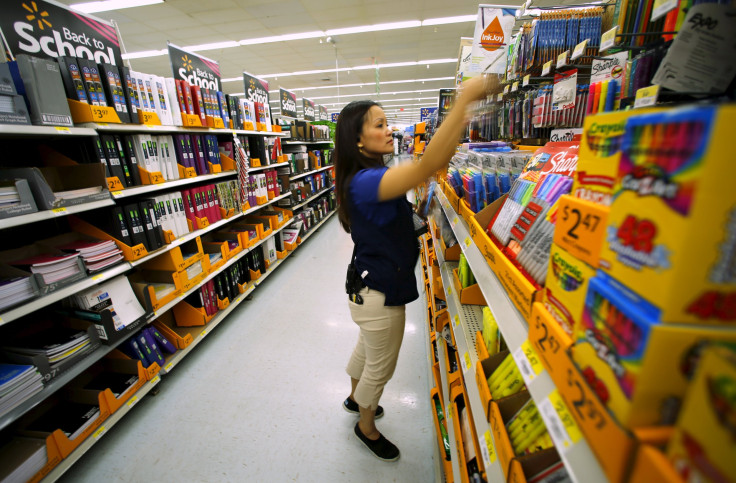US Consumer Confidence Rises In August Before Stock Market Plunge

Consumer confidence in the United States rose in August to its highest level in seven months following a sharp decline in July. The Conference Board announced Tuesday its index rose to 101.5 this month, up from a revised July reading of 91.0.
August's assessment was the highest since January. But the cutoff point for responses to the survey was Aug. 13, about one week before the stock market began a fall that resulted in yesterday's "Black Monday" in which the Dow Jones Industrial Average fell 588 points after a sell-off in response to a slowdown in the Chinese economy. The Dow soared back early Tuesday following China's decision to cut interest rates. China's main Shanghai composite index, meanwhile, fell sharply for the second straight day, losing 7.6 percent Tuesday.
The boost in consumer confidence was largely fueled by an upbeat view of the labor market, said Lynn Franco, director of economic indicators at the Conference Board. “Consumers’ assessment of current conditions was considerably more upbeat, primarily due to a more favorable appraisal of the labor market," Franco said in a statement. "The uncertainty expressed last month about the short-term outlook has dissipated and consumers are once again feeling optimistic about the near future."
Those who said jobs are "plentiful" rose from 19.9 percent in July to 21.9 percent in August. Those who stated jobs are "hard to get" decreased from 27.4 percent to 21.9 percent.
The rise in confidence should boost spending in the months to come, analysts said. "The rise in consumer confidence adds to the evidence that the outlook for consumption growth in the second half of the year remains healthy," Adam Collins, an economist at Capital Economics, told the Associated Press.
© Copyright IBTimes 2025. All rights reserved.






















